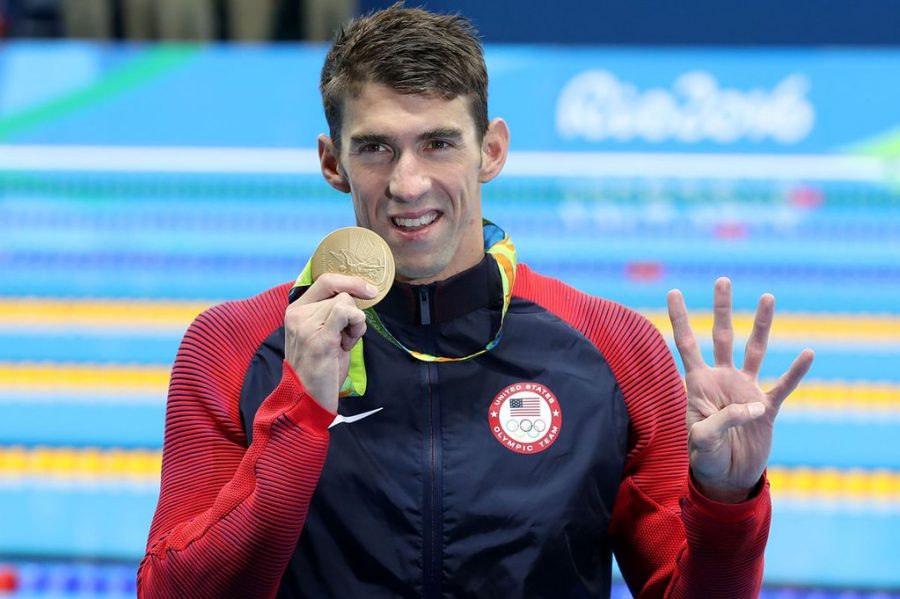Michael Phelps’ Road to Success
Michael Phelps is perhaps one of the most recognizable sports figures of all time due to his amazing feats in the pool. Phelps is the single most accomplished Olympian ever. What many fans don’t realize is that it was never easy for Phelps. He’s faced many challenges along the way including his difficult relationships with his father and his coach as well as substance abuse problems.
Michael’s relationship with his father was broken from a young age. His father, Fred Phelps, had divorced Michael’s mother when he was nine years old. Michael has expressed that he felt as if his father abandoned him. Bob Bowman, his coach, became a father figure to the young Phelps and was tasked with navigating Michael’s complex personality. Phelps displayed aggression towards Bowman, and it often became heated between the two. Their relationship was simple, Bowman would push Phelps; Phelps would push back. This would continue until someone snapped. There are many stories of their epic fights. According to an ESPN magazine article, at the Meadowbrook Aquatic & Fitness Center, where Phelps trained, “there’s still a massive dent in a door frame, courtesy of Bowman’s right foot after one of their arguments.” In 2010, Bowman and Phelps got into it again. It ended with Bowman imploring Phelps to swim somewhere else. Bowman explains Phelps didn’t come to practice for days. “I thought he was gone.”
Bowman went on to coach Phelps in college at the University of Michigan. According to an ABC News article, Greg Harden, Michigan’s director of athletic counseling, opened the door to what caused this anger and aggression from Phelps. He suggested to Bowman that perhaps when Michael was picking fights with his coach, he subconsciously was fighting with his dad. “So whenever he felt threatened or frustrated or whatever, he’d turn me into Fred and yell at me,” Bowman said. “It took me awhile to realize that.” Once Bowman understood this he felt sympathetic.
In Beijing, Phelps won eight Gold Medals in eight races. He was celebrated around the world for his accomplishment. After the Olympics, Phelps went on a global tour of interviews and meet-and-greets. According to an ESPN Documentary, Phelps “despised the image of perfection his success created.” On his first day out of the spotlight, he was photographed smoking from a bong at a party. The photo went viral. He was suspended by USA Swimming for three months. After the World Championships in 2009, Phelps’ drinking, partying and rebellious ways worsened. He began missing practice for weeks at a time. Each day at Meadowbrook, Bowman would constantly check the clock and the doors, wondering whether Phelps would return.
By the summer of 2012, no one hated swimming more than Michael Phelps, and no one despised coaching more than Bob Bowman. In 2012, Phelps added 6 medals to his collection, 4 gold and 2 bronze. By that time, Phelps said he was “done with swimming, and wanted nothing to do with the sport.” After the 2012 Olympics, Phelps announced his retirement, only months into it, Phelps felt a lack of purpose. Swimming had dominated his life since he was a child, and now that it was over, he didn’t know what to do. He began partying and isolating himself from the world. Bowman told ESPN that he “thought it was going in a direction where something really bad was gonna happen.”
Phelps, looking to rediscover a sense of purpose, decided that he wanted to return to the sport. When he explained his wish to Bowman, Bowman immediately said no. He said he couldn’t fight with Phelps for another 4 years, but Phelps convinced Bowman that this time would be different, that this time he would do it right. But it wasn’t. On September 30th, 2014, after a night at a casino, Phelps was arrested and charged with a DUI. Bowman felt that Phelps had run out of chances, and this was going to be it. In the ESPN documentary, “The Evolution of Michael Phelps,” Phelps recalls he “spent the next five days curled up in his bed in his Baltimore apartment.” He went on to say, “I didn’t really leave my room. I didn’t eat, I didn’t really sleep. I just figured it was the best thing to do to end my life.” This shows the depth of his depression.
Ray Lewis, an unexpected life coach, came to the rescue and lifted Phelps out of this state. Lewis, a former Baltimore Ravens linebacker, inspired him to get help. Phelps admitted himself to The Meadows, a rehabilitation center. He recalls arriving at The Meadows shaking and never being more afraid in his life. There, Phelps spent 45 days on a journey of self-discovery. He spent those days enveloped in a book given to him by Ray Lewis, called “The Purpose Driven Life.” This helped him a lot; he learned things about himself that he never realized. This experience led Michael to attempt to repair his broken relationship with his father, and pull his life back together.
In November of 2014, he returned to training for Rio with a renewed sense of purpose. He had a tough battle ahead of him, having missed nearly 2.5 years of training time. He worked harder than ever and with a different attitude, on a better path in life. This led him to his most rewarding success in Rio. In his fifth and final Olympics, Phelps racked up another 5 gold medals and 1 silver medal. Finishing with 28 total medals and 23 golds, Phelps has won the most total medals and gold medals ever by any Olympian.
After the Rio Olympics, Phelps retired from swimming, satisfied with what he had accomplished in his swimming career and the direction of where his life is heading. Phelps will turn his full attention to his family: Nicole Johnson, his wife, Boomer Phelps, his baby boy. He will continue the work of his foundation, The Michael Phelps Foundation, which works to grow the sport of swimming and promotes healthy and active lifestyles.







